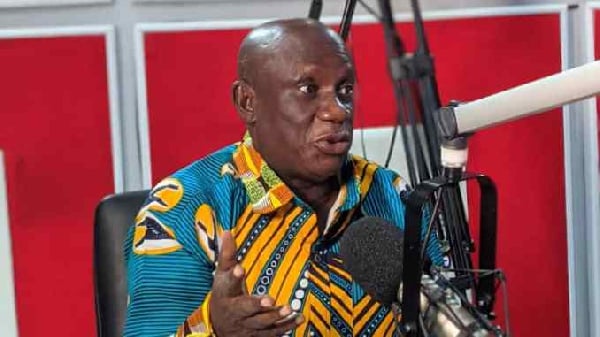Nana Obiri Boahen, a notable private legal practitioner, has publicly admonished retired Supreme Court Justice, Williams Atuguba, encouraging him to refrain from commenting on the current state of national affairs to protect himself from potential ridicule. This suggestion comes in response to Justice Atuguba’s outspoken critique of Ghana’s situation, which has ignited considerable debate among citizens. The retired judge has been vocal about what he perceives as rampant systemic corruption overtaking the nation, claiming that private interests are overpowering the collective national interest. He passionately expressed his views in an interview, stressing the alarming assertion that Ghana is experiencing a scenario of “complete state capture,” which he believes undermines the foundational principles enshrined in the Constitution.
Justice Atuguba articulated his concerns regarding the erosion of constitutional rights, questioning whether freedoms such as freedom of speech and fundamental human rights remain upheld in the current political climate. His remarks pointed to a culture where citizens perceive that the guarantees of the Constitution, particularly concerning economic welfare and overall rights, are being violated. The retired Supreme Court justice’s perspective suggests that the rule of law and democratic principles are faltering under the weight of corruption that he associates with contemporary governance in Ghana.
In light of these comments, Nana Obiri Boahen’s reaction took a critical tone, indicating that Atuguba’s interpretation implicitly insinuates that the issue of corruption in Ghana began solely with the New Patriotic Party (NPP) administration. Boahen, who served as a Deputy Minister of Interior during John Kufuor’s presidency, urged Justice Atuguba, who he believes should be more circumspect in his public pronouncements, to remember the broader context of Ghana’s political history. He questioned the retired judge’s implication that the NPP is solely responsible for this crisis, emphasizing that corruption and the abuse of political power have deep roots that predate the current government.
Reiterating his point, Boahen challenged the narrative that undermines the historical perspective of corruption in Ghana. He provocatively inquired when the corruption saga in Ghana truly began, implying that it is a persistent issue that cannot simply be attributed to the current political era. By doing so, he seeks to remind Ghanaians that the complexities of corruption span various administrations, and it is essential to recognize this continuity. His remarks reflect a broader sentiment that the conversation around accountability and corruption should not be reduced to partisan blame, as that could hinder collective action and progress toward addressing the underlying issues.
Moreover, Nana Obiri Boahen brought attention to a significant corruption scandal within the Ghanaian judiciary, famously introduced to the public by investigative journalist Anas Aremeyaw Anas. By referencing this event, he urged Justice Atuguba not to overlook or conveniently forget the darker chapters of Ghana’s judicial history, framing it as critical evidence that corruption is deeply embedded across various sectors. His call for silence among public figures points to a fear of escalation in societal tensions, suggesting that continuous vocal dissent may invite more severe public scrutiny and backlash against those who speak out without considering the entirety of the situation.
Ultimately, the exchange between Nana Obiri Boahen and Justice Williams Atuguba underscores a critical discourse in Ghanaian society about accountability, governance, and the pervasive nature of corruption within the political landscape. While Atuguba seeks to shed light on what he views as concerning developments, his critics like Boahen fear that an isolated interpretation of circumstances may lead to misunderstandings and could serve to politicize issues that are fundamentally national in nature. Hence, this discourse continues to reverberate through media, public opinion, and the broader context of Ghana’s push toward establishing a just and accountable governance framework.














